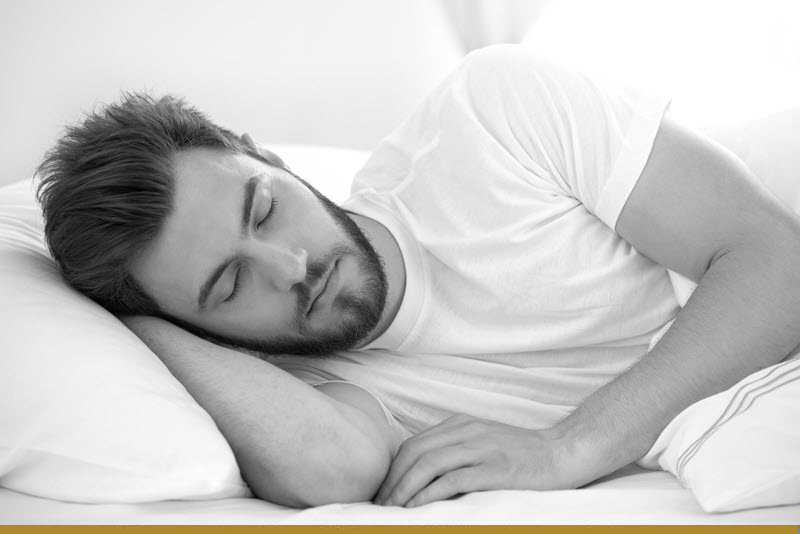Testosterone is best known as the male sex hormone, but its function goes beyond regulating male sexual characteristics. It affects men’s and women’s muscle and bone health, fat distribution, heart health, mood, and even sleep.
This article gives an overview of what science knows about the link between sleep and testosterone and how to improve both.

Healthy testosterone production follows the normal circadian rhythm. The hormone is the highest in the morning, dips in the evening, and begins to increase with the onset of sleep. Disturbed sleep is associated with reduced morning testosterone.
Research shows insufficient sleep and medical conditions like sleep apnea can deplete testosterone levels. Delayed or fragmented sleep disrupts the circadian rhythm, inhibiting the natural increase in testosterone that comes with sleep.
Low testosterone perpetuates sleep problems and can lead to insomnia. It can also cause hot flashes and night sweating in women, preventing sleep.
Note: Learn more about the connection between hormones and insomnia, or find out whether low testosterone can also cause fatigue and low sex drive in men.
High testosterone doesn’t typically affect sleep. Sleep issues are a more common symptom of low testosterone. However, some patients report sleep abnormalities and worsening sleep apnea after taking high doses of testosterone therapy.
There are several ways to enhance testosterone production and improve sleep quality.
Note: For more information, refer to our guide to using Relora for sleep.
Men with sleep problems and symptoms of low testosterone often have the following questions about testosterone and sleep regulation.
Healthy sleep patterns, which include 7-9 hours of uninterrupted sleep at night, support normal testosterone production. Quality sleep doesn’t increase testosterone over its normal levels; it only contributes to maintaining a hormonal balance to ensure the optimal functioning of testosterone-regulated processes.
Scientists recommend avoiding napping, especially later in the day and close to bedtime, because it can interfere with falling and staying asleep. People who need rest during the day should do it earlier and limit their nap to 30 minutes.
Evidence suggests testosterone therapy makes it easier to fall asleep and may improve sleep quality. The therapy involves administering testosterone in the form of creams, skin patches, pellets, and injections. Doctors prescribe it as an FDA-approved therapy for men diagnosed with low testosterone.
Note: Learn more about testosterone therapy benefits.
Sleep and testosterone are closely related and affect one another. Small changes in your bedtime rituals can positively impact your sleep quality and improve testosterone levels. If the problems persist, discuss treatment options with your healthcare provider.
If you are in the Phoenix area, contact our experienced medical professionals to determine if testosterone therapy can help you.




4325 E Indian School Rd, Suite 130
Phoenix, AZ 85018
United States
(480) 422-2058
info@vibrantvitalityclinic.com
Monday - Friday: 9:00 am - 6:00 pm
Saturday: 9:00 am - 3:00 pm
Sunday: Closed
